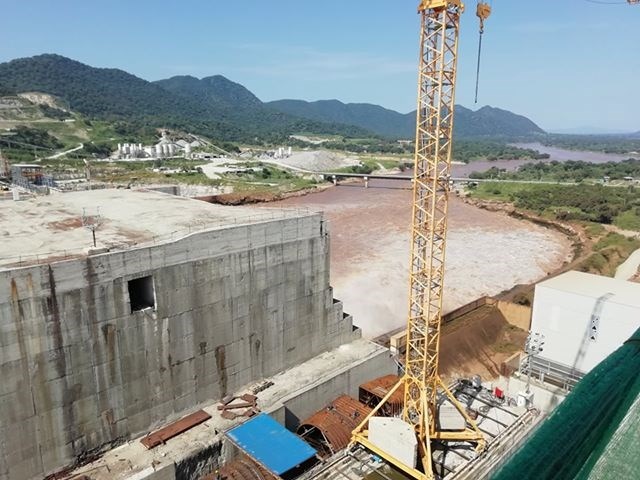
Sunday October 6, 2019

Ethiopia’s Grand Renaissance Dam.
Ethiopian Dam talk is stalled, and Egypt is blaming Ethiopia for the failure. This time around Egypt seeks international mediation.
The tripartite talk on Africa’s biggest Dam which Ethiopia is building on the Nile River does not seem to be showing any sign of progress.
Reuters reported that Egypt disclosed on Saturday that the talk with Ethiopia and Sudan has reached a “deadlock,” and Egypt has called for international mediation.
The latest round of talk between Egypt,Ethiopia and Sudan took place between October 4 and October 5 in the Sudanese capital, Khartoum. Days before the meetings of water ministers, National Independent Scientific Research Group (NISRG) from the three countries held their meetings in Khartoum.
The Egyptian ministry of water resources and irrigation has issued a statement in which it said “Talks have reached a deadlock as a result of the Ethiopian side’s inflexibility,” as quoted by Reuters.
The statement further said that “Egypt has called for involving an international party in the Renaissance Dam negotiations to mediate between the three countries and help…reaching a fair and balanced agreement.”
However, Egypt did not give details as to which country or countries should be involved in the mediation.
The United States has issued a statement on Friday in which it pointed out that “All Nile Valley countries have a right to economic development and prosperity”
Egypt wants Ethiopia to fill the dam in seven years, and also to release 40 billion cubic meters of water every year. The Ethiopian position is that the volume of water flowing to the lower course of the river fluctuates between 29 billion meter cubic to 79 billion metric cubics, and it is not possible for Ethiopia to give guarantee to release the amount of water that Egypt wants.
Egypt also wants to fill Aswan Dam to the point of 165 meters above the ground. Ethiopia is rejecting Egyptian dictation of the terms of the agreement. Egyptian position has become a talking point among Ethiopians within the context of Ethiopia’s sovereignty and the tendency is that Ethiopia should firmly stand by its right to use the water resource equitably.
“The Ethiopian minister of water, irrigation, and electricity, Seleshi Bekele, confirmed that Ethiopia cannot be sure about the volume of water it would export to downstream countries, for several reasons, including the growing demand for water for development purposes in the country,” Middle East Monitor cited him as saying.
Ethiopia has expressed its commitment to equitable use of the water resource over 80 percent of which originates from its own highlands.